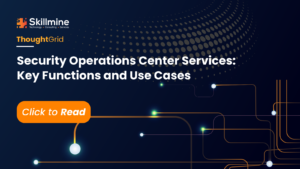In 2022, data and analytics leaders’ top priorities will be closing the gap between their organization’s decision to invest in a data science and machine learning (DSML) strategy and the needs that business units have for results. Despite the increased interest in DSML’s key technology, organizations have struggled to get outcomes from its tactics.
Enterprises’ early confidence for DSML is reflected in market estimates. According to IDC, the global artificial intelligence (AI) industry, which includes software, hardware, and services, will accelerate to 18.8 percent growth in 2022, reaching $500 billion by 2024. According to Gartner, organizations pursuing DSML projects, rely on low-cost, open-source, and public cloud service provider offerings to develop knowledge, experience, and test use cases.
What is Data Science?
Data science integrates mathematical and statistical principles, specialized programming, advanced analytics, artificial intelligence (AI), Machine Learning, and specific domain knowledge. Its purpose is to unveil actionable insights concealed within an organization’s data, providing valuable guidance for decision-making and strategic planning.
Using tools, methodologies, and technology, data science companies extract meaningful information from the vast datasets prevalent in modern organizations. The contemporary landscape is saturated with data, fueled by the proliferation of devices capable of autonomously gathering and storing information. Online systems and payment gateways contribute to the data deluge, spanning fields such as e-commerce, medicine, finance, and various facets of human life. Data science services and solutions analyse and interpret the extensive range of data types such as text, audio, video, and images.
What is Machine Learning?
Machine learning, a subset of artificial intelligence, employs algorithms to extract and analyze data, enabling the prediction of future trends. Software is equipped with models that will allow engineers to perform statistical analyses, unveiling patterns within the data.
For instance, major social media platforms like Facebook, Twitter, Instagram, YouTube, and TikTok collect user information. Leveraging Machine Learning, these platforms predict user interests and needs based on past behaviour, offering recommendations for relevant products, services, or articles aligned with previous searches.
Machine Learning, comprising tools and concepts, finds application in data science and extends to various other fields. Data scientists frequently integrate machine learning into their work, utilizing it judiciously to expedite information gathering or enhance trend analysis. The versatility of machine learning allows its application beyond the realm of data science, contributing to accelerated insights and improved analytical capabilities.
In the past few years, Machine Learning and Artificial Intelligence (AI) have taken centre stage in certain aspects of data science, serving as pivotal components in data analytics and business intelligence.
Areas where DSML will improve in 2022
In 2022, enterprises will increasingly implement DSML strategies, and the following are areas where organizations and platform providers can collaborate to improve outcomes by include these topics on their roadmaps for 2022.
Adaptive Machine Learning
Adaptive Machine Learning has the potential to improve cybersecurity, remote site security, manufacturing quality control, and fine-tuning industrial robotics systems.
Adaptive ML is expected to gain traction across a range of use cases defined by how quickly their contextual data, situations, and actions change. Combining cyber risk with remote site risk assessments in an adaptive ML model, for example, is a use case that utility firms are already implementing. Manufacturing should benefit the most from adaptive ML, as merging telemetry data from visual IoT sensors with adaptive ML-based apps can quickly identify defective items and remove them from the production line.
Collaborative workflow support
Collaborative workflow support in DSML platforms becomes table stakes for competing in the market.Beyond simple question-and-answer forums, collaboration platforms and workflows must enable more effective cross-modal data and code repositories that each collaborator can safely access across an enterprise. There should also be support for data and model visualization, as well as the ability to export models. Communication and code sharing across each step of the modelling process, data lineage and model tracking, and version control and model lineage analysis are all must-haves for cooperation to meet the requirements of data science.
Privacy concerns
Privacy concerns will force every organization creating sensor-connected products and the services supporting them to use synthetic data to build, test, and refine models.Machine learning models for the current and next generation of connected devices with embedded sensors to record biometric data are among the most difficult to develop today. Startups developing AI-based worker safety solutions are discovering that they need to collect and fine-tune synthetic data in order to forecast things like when, where, and how accidents can happen. Synthetic data is becoming prevalent in the creation of AI and machine learning models. Generative adversarial networks, a widely utilised technique for creating synthetic data with randomised fraud patterns, has helped American Express improve its fraud prediction models.
Organizations implementing DSML initiatives must define a roadmap about what they want to achieve from a business case standpoint, with demonstrable customer outcomes as the foundation. Democratising machine learning model creation, allowing more businesses to build and fine-tune models. Developing multi-persona support for DSML platforms end-to-end automation of machine learning workflows will accelerate DSML initiatives in 2022.
Looking for expert technology consulting services? Contact us today.





